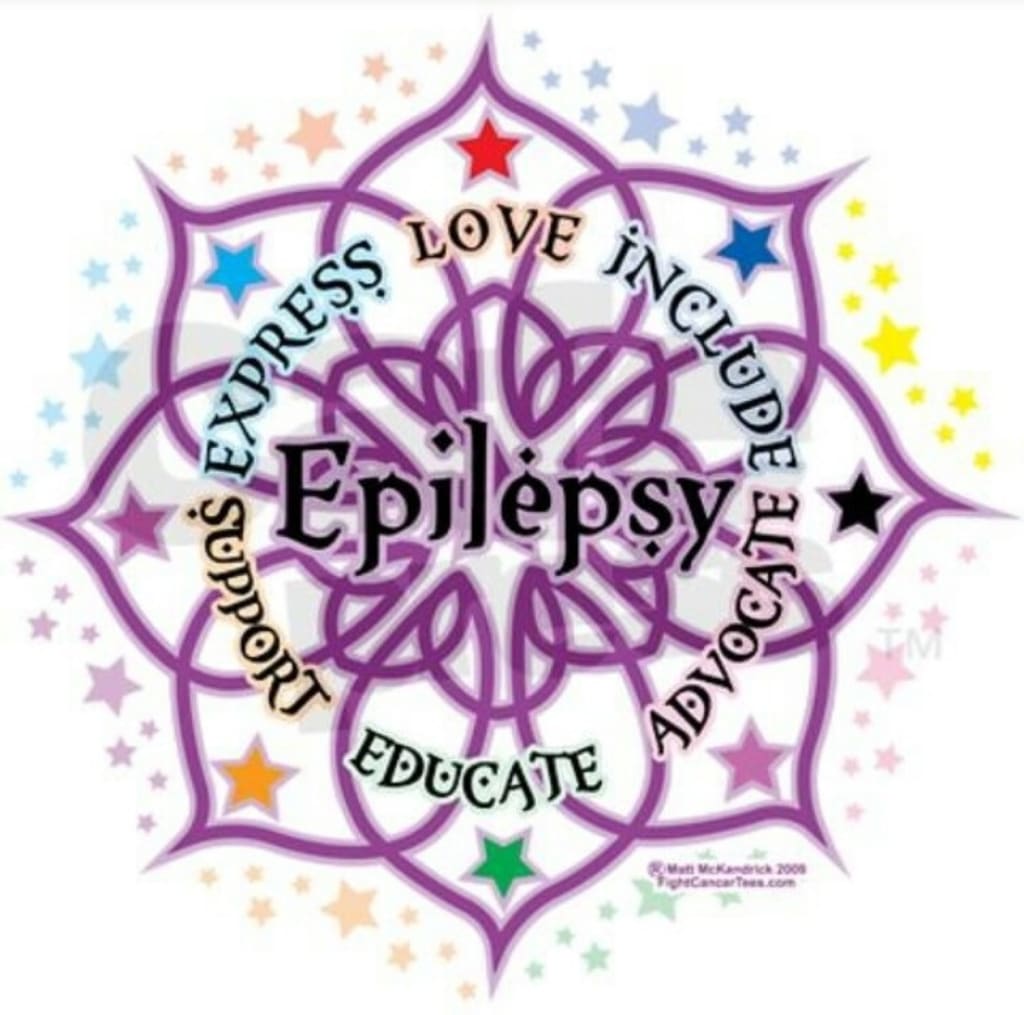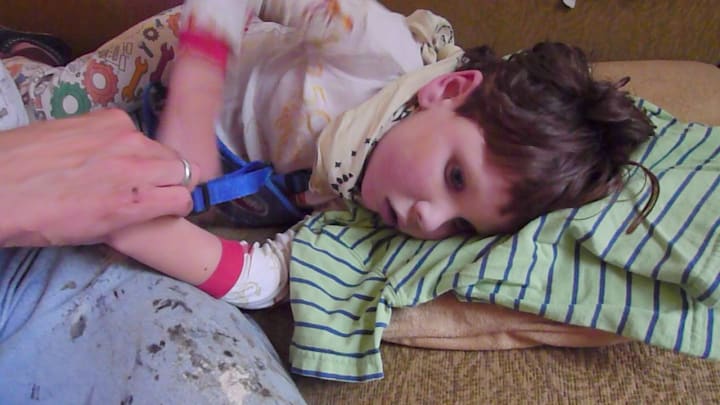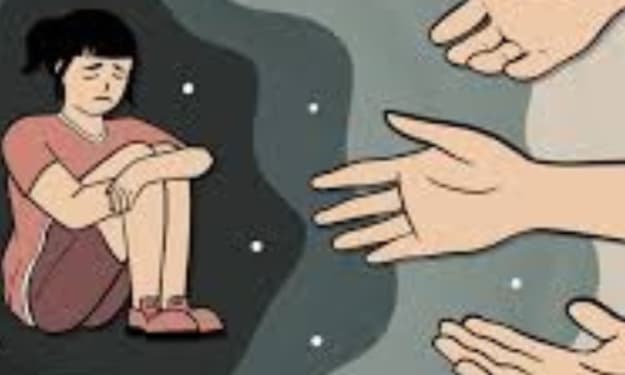
A week ago, I experienced my first grand mal seizure after being seizure-free for ten years. I have found, in my years of being epileptic, that I have missed out on experiences, jobs, and relationships due to people's failure to understand what epilepsy really is. So, without further ado, I'm hoping to write a little bit about my experience suffering from grand mal seizures and their recurrence.
My Family History
I have family members with epilepsy and migraines, but in the past, there was a much bigger stigma against having epilepsy and similar neurological disorders, and my family members who have been diagnosed, all of who are from older generations than me, would not appreciate me outing them. So I won't. Suffice to say, I have at least two family members who have a history of epilepsy and migraines. Both have gone on to lead very fulfilling lives. One was unnecessarily and, in my opinion, unjustly fired due to having a seizure; he worked an office job at the time and the seizure, while alarming, did not pose a health risk to any of his coworkers. However, he has since gone on to have a very fulfilling and promising career. The other family member I have that had epilepsy didn't have much of a career, although that was largely due to the fact that married women in her time didn't really work outside the home. She did, however, do a large amount of volunteer work.
My First Round
When I was eleven, I had my first EEG. I had a couple of petit mal episodes, so my school wanted to send me for one. The test came back negative, so they didn't worry about it too much. However, the following year, I had my first grand mal seizure—and on the first day of the school year, as well. Despite my family history, I wasn't officially diagnosed or put on any medication, as many people have one seizure in their lifetime and never have another one. My friend, for example, had one grand mal seizure as a baby and has never had another one since. However, I had another seizure shortly after and at that point, they sent me off for another EEG, which also came back negative. However, the doctor in charge stated that since I had had two grand mal seizures and no other underlying cause, there was a 99% chance that I had epilepsy. I was started on Epilim.
What It Was like Growing up with Active Epilepsy
My Epilim knocked my seizures right out. After I was started on Epilim, I never had another one. However, there were nasty-as-hell side effects—namely, it caused the worst food cravings. I remember having the most disgusting, impulsive urges to go on junk food binges that were very hard to resist. My weight therefore skyrocketed and even after the Epilim was stopped, it took time to correct itself. I was then put on Lamictal, or Lamotrigine. The first time around it worked, but caused a nasty rash. So, they lowered the dose and tried putting me halfway back on Epilim. The rash went away after awhile, but the food cravings didn't. So, they gradually took the Epilim away and raised the Lamictal. This worked for awhile...until it didn't. After a couple of years, it was like a dam burst, and the Lamictal lost all effectiveness. I still have a scar from a cut lip I got ten years ago.
One of the worst things about having epilepsy as a teen wasn't the seizures themselves, but the isolation. As a fifteen-year-old kid, I wasn't allowed to learn to drive. I wasn't allowed to go out to the movies with friends or go out on dates. I wasn't allowed to go out shopping for clothes or do any of the normal things teenagers do, for a period of around four to five months, because my parents were terrified I'd have a seizure in public. I had a seizure in front of my peers at school and it was embarrassing having to be dragged off to the school nurse, but I developed depression from the loneliness that came from watching everyone else going out and having fun while I was forced to stay home and wait. I remember my doctors wanting to give Lamictal one more go, and me begging them to just take me off it already—because I was done with being isolated, done with being singled out and treated differently for something I couldn't control, and just wanted to be a normal kid again.

Finding a Working Med Combination
I then got offered Topamax. Topamax hadn't been particularly effective for others I knew that suffered from seizures but, fortunately for me, it worked almost immediately. I had one seizure when I first started, and then went ten years without any grand mal seizures. I had very, very occasional (every two or three years) petit mal seizures and sleep seizures. I eventually learned to drive and ride a motorbike. The day I got my motorbike license was one of the happiest days of my life. It really speaks volumes, I believe, that I have epilepsy and can ride a motorbike.
One thing I have found relentlessly frustrating is the attitudes of other people. I worked in childcare for many years, and due to the nature of the work, I needed to tell my employers and any potential employers about my condition. Some employers were great about it. Some weren't so great about it, and some potential employers were downright patronising about it and couldn't get their head around the fact that it was a medical condition that had been dormant for some years. I definitely believe it affected my ability to get a job in that area and I definitely believe it affected how others viewed me. However, one of the best stories I have is an employer whom I didn't tell initially, and who reacted very badly when I told her—to the point of taking away quite a lot of my responsibilities. However, over time, she slowly relaxed and trusted me with more and more responsibilities than she did in the first place. On the flip-side, I was talking to a so-called friend who was a supermarket manager about my epilepsy who said he wouldn't even hire me to work at his supermarket to scan groceries because the scanner could set me off. I think I have met stupider people, but It'd be a bit of a challenge to think of many—most types of epilepsy aren't photosensitive (triggered by flashing light). As an example, I have been to rock concerts in the past without issue and, as a music major, plan to go to many more in the future.
Traveling overseas, I have had friends completely misunderstand what causes a seizure. For example, I also suffer from anxiety and an unfamiliar situation such as driving in a strange city can easily set my anxiety off. However, anxiety and seizures are two completely different things. My friends seem to somehow associate them with each other, which I find relentlessly frustrating.
Relapse
I had another grand-mal seizure the other day. I was at my friend's house and my friend was pretty freaked out. She said that in the initial phase, I looked like the girl from The Grudge before I fell to the floor and just started shaking. Of course, I remember none of this. One minute, I was standing in my friend's apartment when I felt an all too familiar feeling of déjà vu. I sat down, having an awful feeling of what was about to happen, praying that I was wrong. The next minute, I was lying on a stretcher with paramedics standing over me. A ten year grand mal-free stretch, brought to an abrupt end. Well. That just goes to show what happens when you get a little too confident and try tapering off your meds. Lesson learned.
If there is one thing that epilepsy has taught me, it's tolerance for people with disabilities. When I look at a job application form and see a question about epilepsy, I feel angry. To the HR person reading that form, it's honestly none of your business whether or not I have it, unless I work in an occupation where people's lives are at risk—for example, working as a continuing care aide, nanny, bus driver, or construction worker. It's also taught me determination. I'm not going to waste away on welfare or let the nanny state define me. And to finish with a quote from an early entrepreneur, Henry T. Ford: "If you think you can do it, or you think you can't do it, you're right."
About the Creator
Enjoyed the story? Support the Creator.
Subscribe for free to receive all their stories in your feed. You could also pledge your support or give them a one-off tip, letting them know you appreciate their work.





Comments
There are no comments for this story
Be the first to respond and start the conversation.